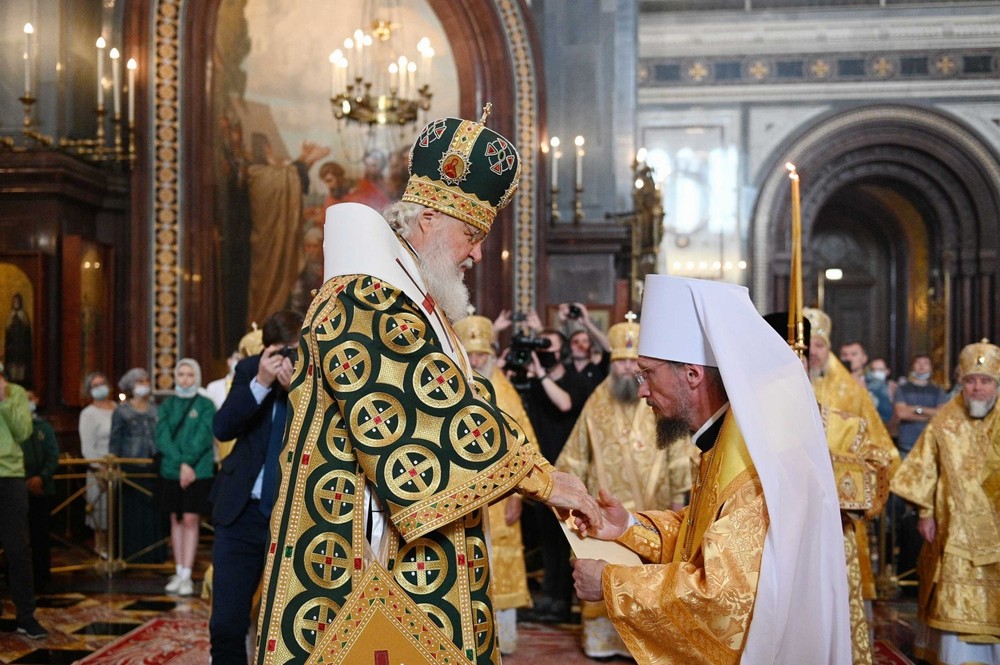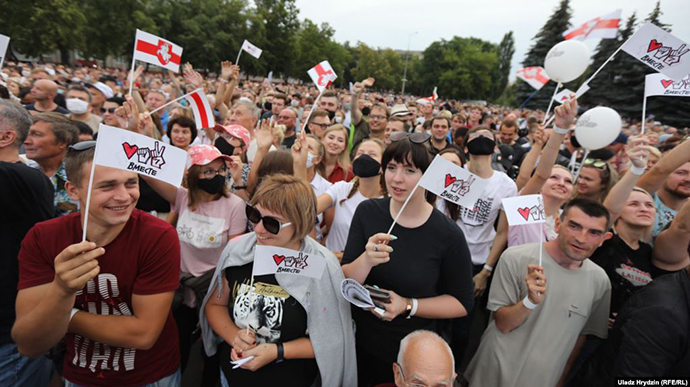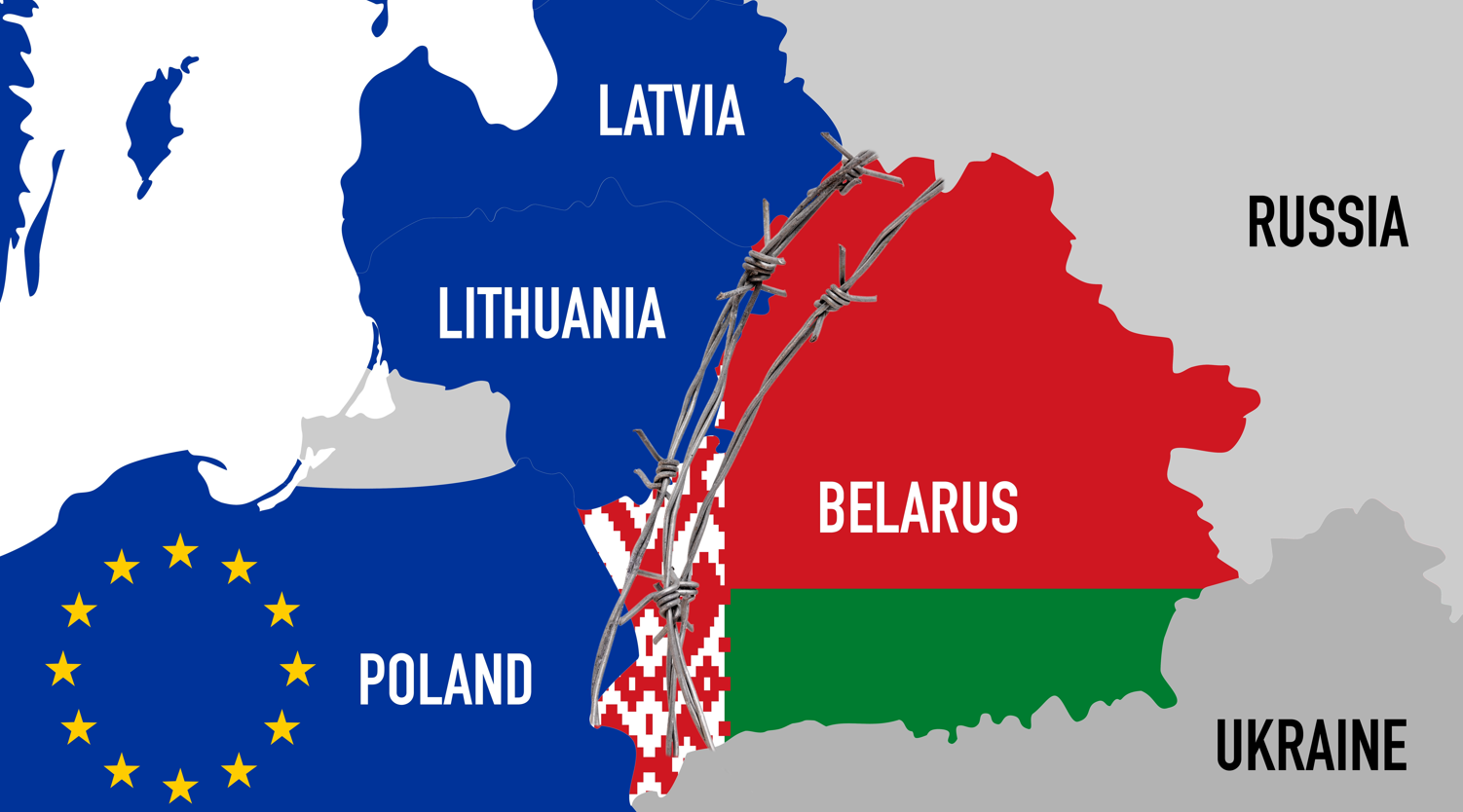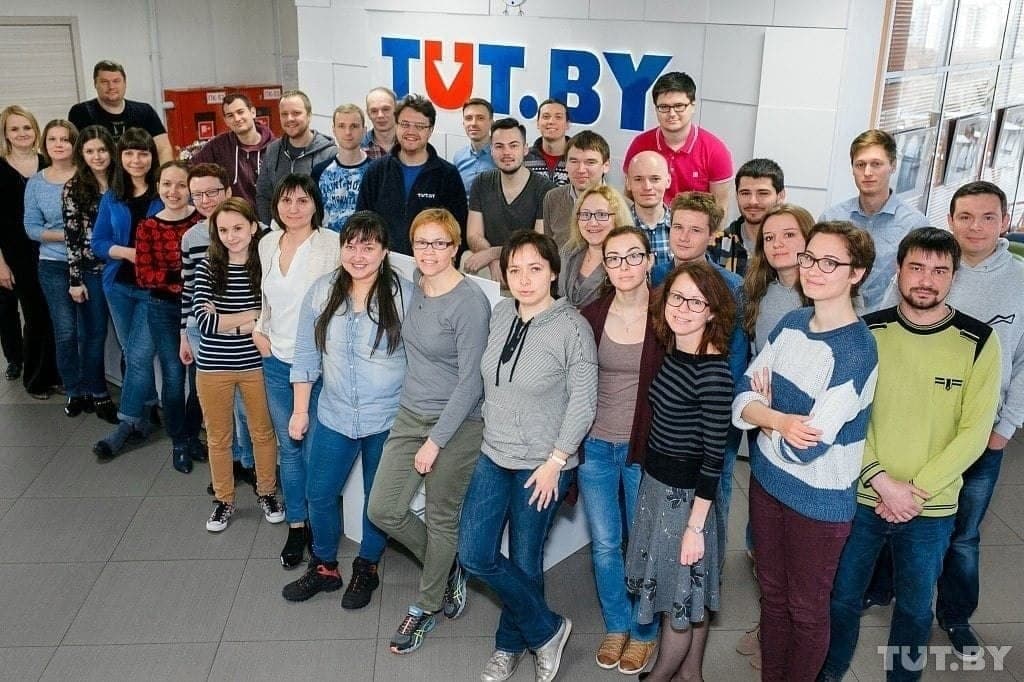In fact, today, we can say that Belarus is experiencing Ukraine’s Orange Revolution of 2004
, but definitely not the Revolution of Dignity of 2013-14. It is a surprise that neither Tsapkala nor other Belarusian opposition leaders have realized this.
Sixteen years ago, presidential elections - very similar to the Belarusian 2020 vote - were held in Ukraine. President Leonid Kuchma had no intention of running for a new term. However, he appointed a successor - a member of the influential and powerful Donetsk clan, Viktor Yanukovych… and Yanukovych’s candidacy was fully agreed with the Kremlin.
Vladimir Putin
himself personally supported Yanukovych as the presidential candidate. Yanukovych’s Kremlin headquarters were headed by the future President of the Russian Federation Dmitry Medvedev. The Ukrainian authorities and the Kremlin firmly believed that opposition candidate Viktor Yushchenko had no chance of winning. Viktor Medvedchuk, head of Leonid Kuchma’s Presidential Administration and active lobbyist for Russian interests in the Ukrainian government, stated that Yushchenko would never become President of Ukraine.
A revolution within the electoral cycle

According to the official results of the Central Election Commission announced on November 23, 2004, the run-off election was won by Viktor Yanukovych. The election results were challenged by Viktor Yushchenko and his supporters with many international observers claiming that the elections were rigged, with massive corruption, media bias and voter intimidation.
It was then that the first Ukrainian Maidan began - the Orange Revolution… a revolution that took place within the electoral cycle. The most prominent opposition politicians expressed their support for Yushchenko - direct participants in the presidential elections and political leaders who supported Yushchenko from the very beginning of his presidential campaign.
However, during that crucial month of 2004, Ukrainian politicians and Ukrainian voters behaved differently than Belarusians today. It was then, after the electoral cycle was over, that the phenomenon of the Ukrainian Maidan emerged. It was then that Ukrainians all across the country explained their protest by the fact that the name of the real winner of the presidential election was known to all. It was not Viktor Yanukovych. It was Viktor Yushchenko. Moreover, it was in order to force the authorities to agree with this position that the protesters remained in Kyiv’s central square, Maidan Nezalezhnosti. They were joined by people from many other Ukrainian cities who demanded fair and free elections.
Belarusian opposition leaders should not be afraid of the Ukrainian experience
The Ukrainian people did not leave the central square until government members, opposition leaders and the international community reached an agreement to hold an additional round of presidential elections. Of course, Viktor Yanukovych, successor to the notorious Leonid Kuchma [heavily implicated in the so-called Cassette Scandal (Tapegate) of 2000-Ed] had no chance of winning a fair election. The final results showed a clear victory for Yushchenko, who received about 52% of the vote, compared to Yanukovych’s 44%. The Ukrainian voters were not just against Yanukovych, but against the continuation of Leonid Kuchma’s oligarchic regime. Viktor Yushchenko was declared the official winner and with his inauguration on January 23, 2005 in Kyiv, the Orange Revolution ended.
At this point, we should ask ourselves one question. Would the people of Ukraine have been able to obtain concessions from the authorities if they had simply attended protests, rallies and organized strikes? Would they have been able to force Leonid Kuchma and Viktor Yanukovych to agree with the decisions reached during the Mariyinsky Palace Negotiations*? Indeed, it is quite possible that Viktor Yanukovych would have become President of Ukraine back in 2004, and he would have remained at that post to this very day.
The phenomenon of the Ukrainian Maidan is not in its name, but in the fact that the organized encampment on the central square of Ukraine, as well as in cities and towns across the whole country, forced Ukrainian politicians and high-level officials to look at the situation with open eyes and take it into account. It is much harder to ignore an encamped and determined Maidan than demonstrations and strikes. This constitutes a good reason for Belarusian opposition leaders not to be afraid of the Ukrainian experience, but to think about how to use it correctly.





